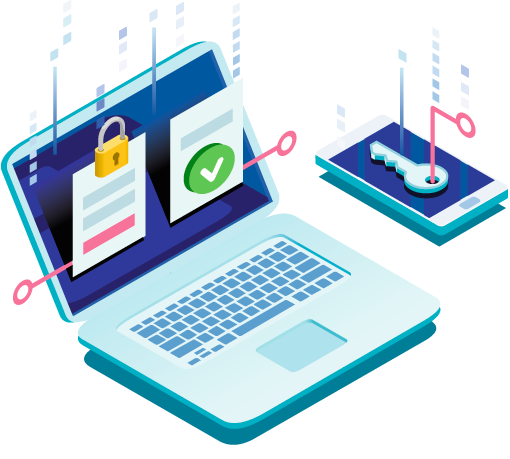Cyber Security
Vulnerabilities and cyber-attacks risks under Covid-19 pandemics
By Félix Grimán Cybersecurity expert
The way business used to run is, right now, forced to change paradigms from those we all knew and dealt with on a day-to-day basis, due to the need of “Social Distancing” provoked by the new virus that is affecting people worldwide and taking more than a quarter million lives around the world.
The risk of contagion that a person undergoes, has led to Remote Working, also known as Work From Home, bringing as a first consequence having to access the company's information from places that, in most cases, do not have adequate and/or standard levels of security, to protect that information from being intercepted, stolen and used by cyber thieves.
Now more than ever, secure connection and encryption technologies are necessary, which many companies, whatever they might be, do not possess because they haven’t had the need to have their employees working remotely.
Company premises
So far, those with adequate levels of security are applied only to safeguard the information within the premises and networks of the company, but not at the workers’ home private LAN through an ISP.
This, of course, also includes the shipping industry. Although many shipping companies may have high levels of digital and communication security on their vessels, this is not necessarily the case in offices on the mainland, much less in work spaces outside the technological infrastructure of the business.
First above anything else, shipping companies (all companies to tell the truth), must set a secure connection to their networks, systems and information through a Virtual Private Network (VPN) which enables the capacity of any of its employees to connect their computers and systems directly to the company’s networks as if they are physically located at the offices or vessels.
In second place, this remote communication needs to be set to use a strong level of encryption to make all the information running through the VPN, as secure and indecipherable as possible, because even when the connection is under the protection of a VPN tunnel, that communication could be sniffed and stolen but, if the thief is not able to decipher what was stolen, everything is an unusable and incomprehensible bunch of nonsense data.

GUIDELINES
In addition to the two main items mentioned before, there are some basic guidelines that all the remote workers employees MUST meet to complete a secure activity when they are connected to the company’s network. They are as follows:
1
Must keep a strong password for their computers, phones, tablets and systems. And, if it is possible and depending on the system, users must have a Two-Factor Authentication, as well known as 2FA.
The password must be, as per some best IT practices, at least eight (8) characters long, combine upper and lower cases and must have special characters (!,”,#,$,%, for example) and must contains numbers.
These requirements for the passwords and 2FA must be configured and implemented by the administrator of each system and train the employees on how to set them on their devices.
2
All staff must understand the risks associated with the use of their devices (laptops, tablets, phones) outside the company. This means that any device could be broken, lost and/or stolen; bringing the need to have a system in charge to block remotely all of these devices and avoid the access to the information stored on them.
Just imagine a stolen laptop where the user, to save time, has all passwords saved to get into the network and systems automatically. What could be wrong?
There are some very good solutions to control this kind of situations and keep tracking on all the assets that belong to the company. In a further article, we could talk about some interesting tools to match this goal.
3
As the previous point, remote workers must be aware of the risk of using removable media where the company’s information has been stored.
As a bad standard, no users, ever, even if they work at the company’s premises or remotely, have the information written in an external drive encrypted (USB, hard disk for example). This makes possible the access to any information stored in those devices directly, no matter what and in this case, there is no tool to block this authorized access.
Anyone could ask why all of these security rules are necessary if the company has security staff to avoid any cyber-attack when working remotely?. The answer is: it is impossible to avoid any attack. That’s why companies must have the cyber security as a high priority activity.
Having said all of this and following the reason for this article, I want to ask all of you, please take care of your health and stay home as much as you can. Our health is the only thing we have control on during this situation. See you all soon.
About Félix Grimán
Félix is an international expert in design and management of high-performance, fail-safe and resilient networks and systems infrastructure. Over two decades of experience in national security projects in several countries; implementation of secure transmissions, encryption, access levels; delivery times management, relationship with governments and companies as well as change management and dealing with conflicts at high-level national administration. Graduate in Systems Engineering and Chemical Engineering; Cisco CCNP, Microsoft MCSE. His interest is the cybersecurity applied to the shipping industry.










